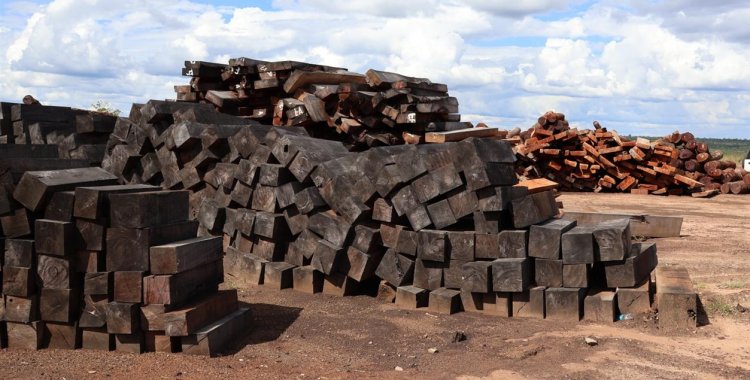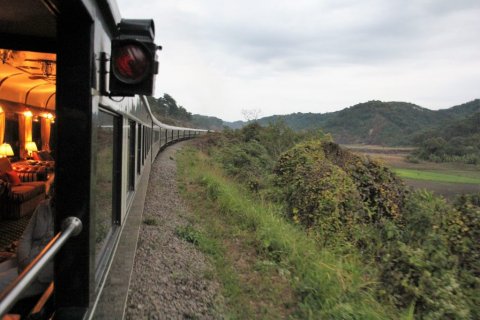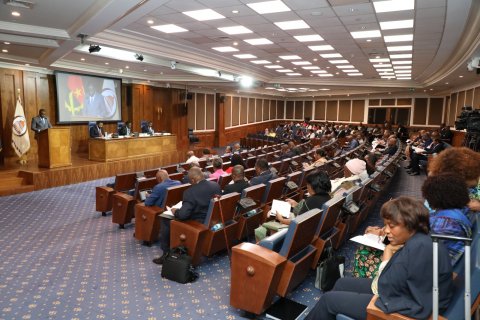"Illegal logging exists and is a very serious problem within our country", said António Francisco de Assis, at the 17th edition of Café CIPRA, which had as its theme the "Implications of Environmental Crimes on the Country's Socioeconomic Development".
According to António Francisco de Assis, the country, with a strong timber potential, has raised from 2023 until now, a total of 34 million euros (around 36 million dollars) from the export of this product, of which 29 million dollars and the another nine million in euros.
"A country like Angola has a revenue of 29 million dollars from wood exports, it is better not to export it. This means that the issue is indeed very serious", said the minister, stressing that measures are underway to reverse this situation "which many people don't like".
António Francisco de Assis stressed that the country has a forestry law that establishes a set of rules and procedures, which also classifies crimes, but the problem is the lack of compliance with these laws.
The government official stressed that two measures were taken to reduce and control illegal logging, one of which is that the sector favors concessions instead of annual licenses.
According to António Francisco de Assis, the entities that obtained the annual licenses sold them, generally to a foreigner, highlighting that the forestry law does not allow "a foreigner to enter the forest and carry out logging activities within the forest" .
The law does not allow a foreigner to have an annual license, said the minister, highlighting that measures were taken to favor the concession regime, requiring the presentation of an exploration and forest replacement plan.
The minister also highlighted that, under the licensing regime, companies that violate the law are placed on the blacklist, have their license revoked, in addition to being fined.
The holder of the Agriculture and Forestry portfolio spoke about "a very worrying situation", which has to do with the removal of controls, on the main roads, in the provincial capitals, stressing that this measure "caused a gradual increase in the mining of wood and the illegal manufacture of charcoal".
"In view of the opening of our roads today, this phenomenon increases significantly and we find ourselves struggling [with this situation]", he said, remembering that it is also illegal to transport wooden logs from one province to another without the appropriate authorization.
The biggest deforestation problem in Angola, according to the minister, has to do with the exploitation of mussivi wood, "which is noble and very attractive, mainly for the Asian market".
"We are taking action in relation to this, we are working with the competent defense and security bodies, we have received a lot of support from them, many people are being arrested, being taken to court, but even so I recognize that we still have to do a lot", he highlighted.







